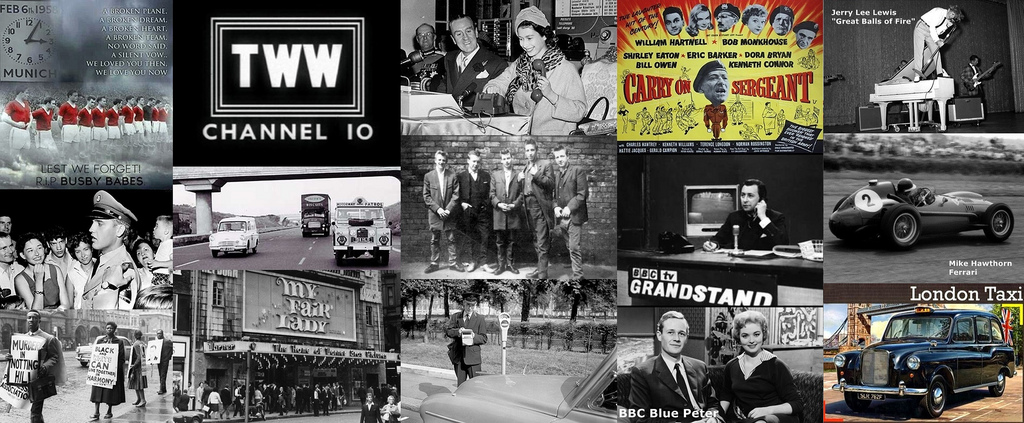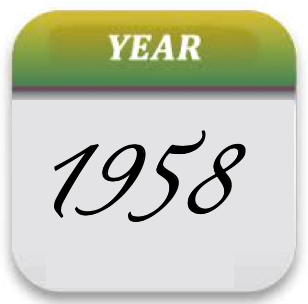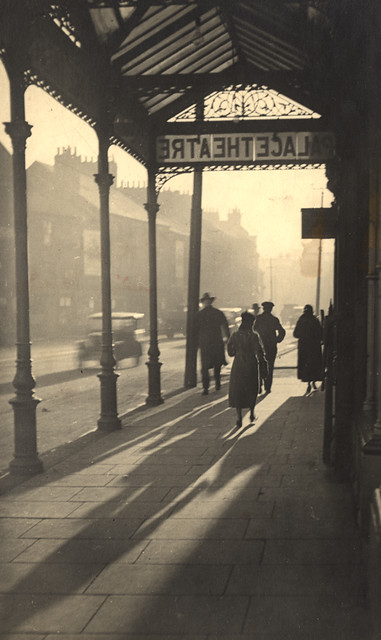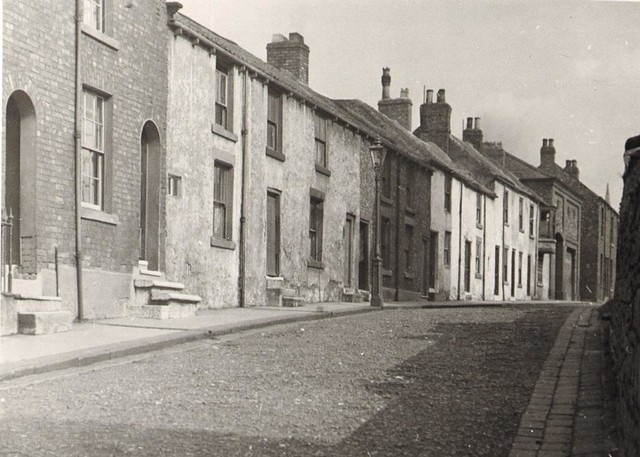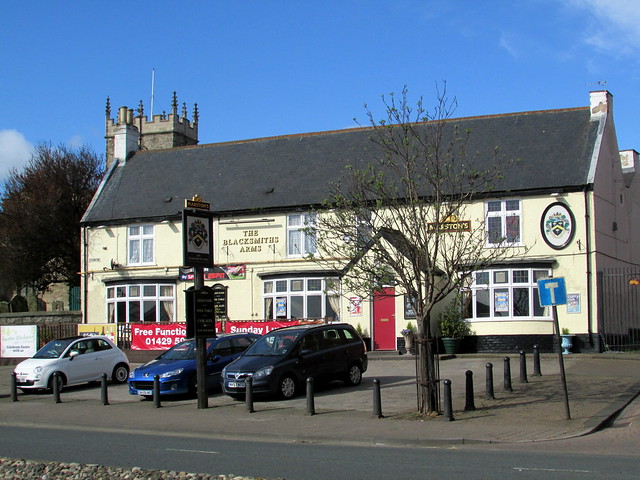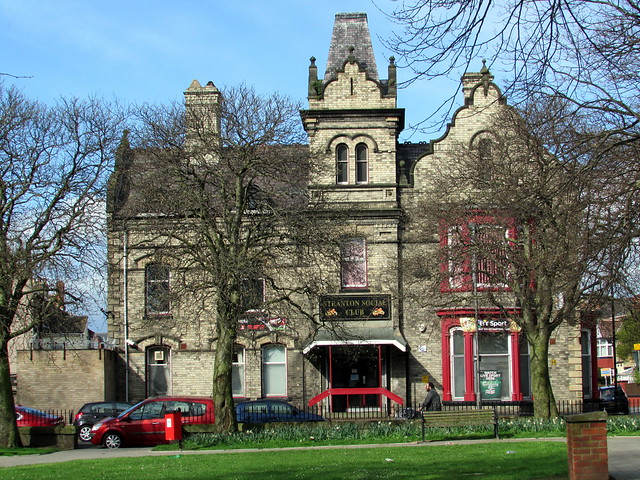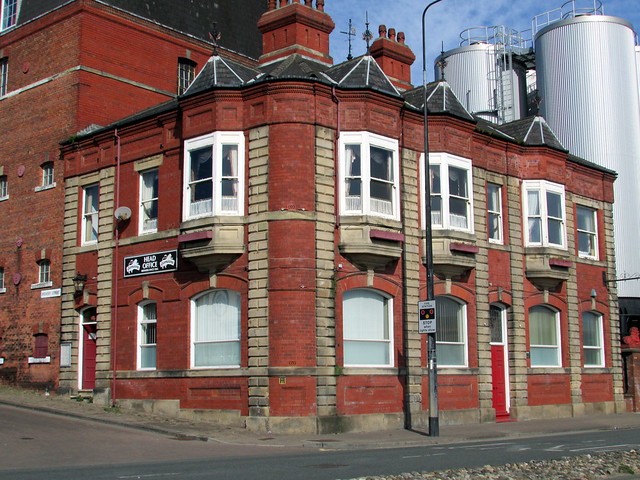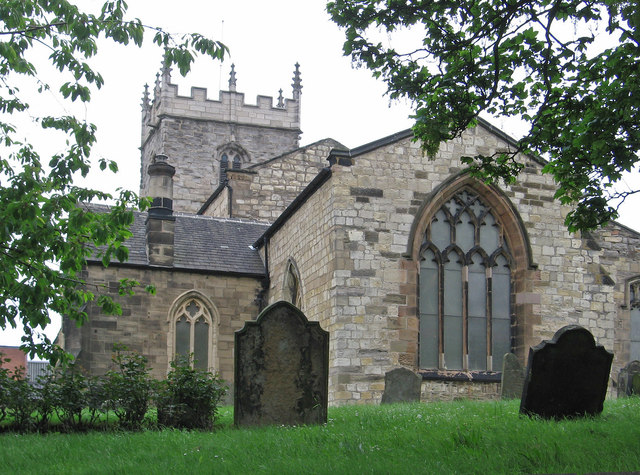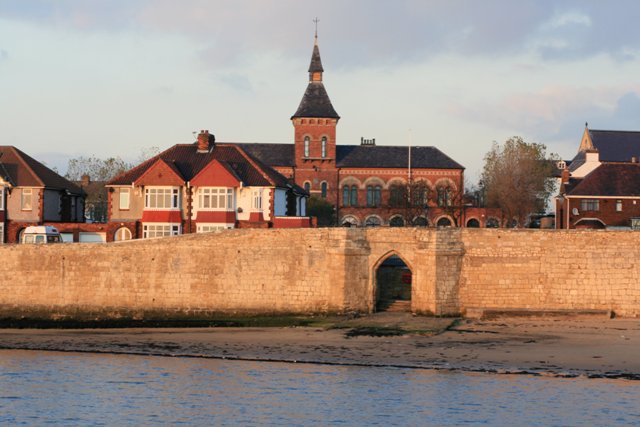That Was the Year That Was - 1958

-
Description
World Events 1958 bought Americans recession with a vengeance and large increases in unemployment over 7.0% ( 5.2 million ) , inflation dipped below 2% in 1958 so those in work earning the average wages of $3,851 per year were quite well off , cars continued to get bigger and heavier with larger engines, but imports continued to grow now with the added Datsun and more Toyotas from Japan. Americas first satellite was launched from Cape Canaveral. This is also the year that the Microchip first developed which is the very early stages of PC's we all now use at work and at home. This was also the year of the Munich air disaster on 6th February in which 7 Manchester United Players died. The Brussels World’s Fair, also known as Expo 58, begins during April of 1958 in Belgium. 14 year old Bobby Fischer wins the United States Chess Championship. Sir Edmund Hillary reaches the South Pole. Elvis Presley is inducted into the Army. General Charles de Gaulle becomes Prime Minister of France. Brazil wins the 1958 World Cup in Sweden. BOAC Britannia flies London to NY in a record 7h.57m. European Economic Community (Common Market) starts operation. Notting Hill Riots 1958 Increasing numbers of Caribbean migrants arrived in London after the Second World War. By 1961 there were over 100,000 Caribbean people living in London. Caribbean migrants often found homes in areas of slum or poor housing. One of these areas was Notting Hill in North Kensington. During the 1950s, a strong Caribbean community had grown up in Notting Hill, many from Trinidad and Barbados. At that time poverty, rootlessness, violence and crime were a part of life in North Kensington. Poor white families competed with poor Caribbeans for housing, a situation that was often exploited by unscrupulous landlords. From the early 1950s, young White working-class 'Teddy Boys' began to turn hostile towards the growing numbers of Black families in the area. Right-wing groups exploited the situation. Fascist groups such as the Union for British Freedom set up branches in the district. Sir Oswald Mosely, founder of the pre-war British Union of Fascists, held street-corner meetings in west London and further afield. Leaflets and wall slogans urged 'Keep Britain White'. During the summer of 1958, gangs of Teddy Boys became increasingly open about their aggressive intentions toward anyone who was Black. Youths smashed Caribbean cafs. Individuals were harassed. On the morning of 24 August, nine White youths assaulted five Black men in separate incidents in Shepherd's Bush and Notting Hill, seriously injuring three of them. UK News & Events The Munich Air Disaster took place on February 6, 1958 when a British European Airways flight crashed at the Munich Airport. The flight was carrying 44 people when it crashed soon after take-off. Many of those on board were sports journalists and members of the Manchester United football team who were on their way home after having qualified for the semifinals in the European Cup. A total of 23 people died as a result of the crash, 8 of them were members of the Manchester United team. The pilot of the flight survived and was later charged with negligence as it was originally believe that a build-up of ice on the planes wings had caused the crash. While there was some ice found on the wings it was determined that a build-up of slush on the runway was the major contributing factor in the crash as it stopped the plane from gaining enough speed for a proper take-off. The crash was a tragedy, especially for sports fans, as the loss of several very young and talented players was devastating. It took Manchester United nearly 10 years to rebuild the team and in 1968 they went on to win the European Cup. Messages of sympathy poured in from around the world and clubs across the UK and Europe held two minutes silence at the games on the Saturday following the accident. Red Star Belgrade, the team the Manchester United side had beaten before the crash, suggested they be made honorary champions in the 1958 European Cup. Another player, Duncan Edwards, died in hospital 15 days later. Manchester United battled to complete the season and reached the 1958 FA Cup final - where they were beaten by Bolton Wanderers. A decade later Manchester United became the first English club to win the European Cup. An investigation into the crash initially suggested pilot error, saying Captain James Thain had taken off without de-icing the wings. He was later cleared when it was found that the build-up of slush on the runway had prevented the plane taking-off. New safety limits were subsequently introduced. 6 January – Chancellor of the Exchequer Peter Thorneycroft resigns over opposition to spending cuts, an event dismissed the following day by the Prime Minister as "little local difficulties". 14 January – TWW, the ITV franchise for South Wales and the West Of England goes on the air. 6 February – The Manchester United F.C. team plane flying back from a European Cup tie in Belgrade crashes on take-off after refuelling at Munich Airport in West Germany. 21 of the 44 people on board are killed. Seven of them are Manchester United players: captain and left-back Roger Byrne (aged 28), centre-half Mark Jones (aged 24), right-half Eddie Colman (aged 21), centre-forward Tommy Taylor (aged 26), full-back Geoff Bent (aged 25), left-winger David Pegg (aged 22), and inside-forward Billy Whelan (aged 22). Eight of the nine sports journalists travelling on the plane are also killed, including the former Manchester City and England national football team goalkeeper Frank Swift. Among the survivors are 10 United players and manager Matt Busby, who is reported to be seriously injured. Outside-right Johnny Berry and left-half Duncan Edwards are also reported to be in a serious condition. (see above). 19 February 1958: In their first game since the Munich air disaster, Manchester United (with a side mostly made up of reserve players) defeat Sheffield Wednesday 3–0 in the FA Cup fifth round at Old Trafford. However, the victory is overshadowed by news from Munich that the condition of Duncan Edwards has deteriorated once more. 20 February – The government announces plans to close the 300-year-old dockyards at Sheerness on the Isle of Sheppey, which would result in more than 2,500 workers losing their jobs. 21 February – Duncan Edwards dies of his injuries in a Munich hospital 15 days after the Munich air crash. Edwards, who was 21 and rated by many as the finest player in England, is the eighth Manchester United player to die. 25 February – Bertrand Russell launches the Campaign for Nuclear Disarmament, initiated at a meeting called by Canon John Collins on 15 January. 27 February – The final death toll of the Munich air disaster reaches 23 with the death of co-pilot Kenneth Rayment in hospital. 28 February – The Victorian Society, the pressure group for Victorian architecture, holds its first meeting. March – Removal of Derbyshire county administrative headquarters from Derby to Matlock begins. 2 March – A British team led by Sir Vivian Fuchs completes the first crossing of the Antarctic using Sno-Cat caterpillar tractors and dogsled teams in 99 days. 21 March – Opening of the London Planetarium, the first planetarium in Britain. 24 March – Work on the M1, Britain's first full length motorway, begins. The first stretch of the motorway, due to open next year, will run from London to the Warwickshire-Northamptonshire border. During the 1960s, the remainder of the motorway will be built to give London an unbroken motorway link with Leeds some 200 miles away. 1 April – BBC Radiophonic Workshop created. 4 April–7 April – The first protest march for the Campaign for Nuclear Disarmament from Hyde Park, London to Aldermarston, Berkshire, demanding a ban on nuclear weapons. 7 April – The Church of England gives its moral backing to family planning. 27 April – BOAC's first de Havilland Comet 4 makes its maiden flight. 30 April - The Life Peerages Act receives Royal Assent; the Act allows the creation of life peers who can sit in the House of Lords. As life peerages could be bestowed on women, this Act allows for women to sit in the House of Lords for the first time. The musical My Fair Lady, starring Rex Harrison and Julie Andrews, opens in London's Drury Lane theatre. 3 May – Bolton Wanderers win the FA Cup for the fourth time in their history with a 2-0 win over Manchester United at Wembley Stadium. Both goals are scored by centre-forward Nat Lofthouse. 21 May – United Kingdom Postmaster General Ernest Marples announces that from December, Subscriber Trunk Dialling will be introduced in the Bristol area. 27 May – Shelagh Delaney's A Taste of Honey staged by Theatre Workshop at the Theatre Royal Stratford East. 4 June – The Duke of Edinburgh's Award presented for the first time at Buckingham Palace. 7 June – Ian Donald publishes an article in The Lancet which describes the diagnostic use of ultrasound. 9 June – The Queen officially re-opens Gatwick Airport, which has been expanded at a cost of more than £7million. 3 July – Last débutante formally presented to the Queen, at Holyroodhouse in Edinburgh. 10 July – First British parking meters installed in London. The chage was 6d (2½p) an hour for the first two hours, ten shillings for the next two hours, and two pounds after that. Today, in London, Motorists pay an average of £7.99 for two hours. Who invented the parking meter? American, Carl C. Magee, of Oklahoma City, Oklahoma, is generally credited with originating the parking meter. He filed for a patent for a "coin controlled parking meter" May 13, 1935. First parking meter in the world - The first parking meter was installed in Magees home town, Oklahoma City, on 16 July 1935. 17 July – British paratroopers arrive in Jordan; King Hussein has asked for help against pressure from Iraq. 18–26 July – British Empire and Commonwealth Games held in Cardiff. 19 July - The 1958 British Grand Prix was a Formula One race held at Silverstone. 1. United Kingdom Peter Collins, Ferrari 2. United Kingdom Mike Hawthorn, Ferrari 3. United Kingdom Roy Salvadori, Cooper-Climax 4. United Kingdom Stuart Lewis-Evans, Vanwall 5. United States Harry Schell, BRM 6. Australia Jack Brabham, Cooper-Climax Bernie Ecclestone entered a pair of Connaughts for Ivor Bueb and Jack Fairman, with Ecclestone also named as a driver of the Fairman car in case he needed to take over the entry. 24 July – The first life peerage is created. 26 July - The Queen gives her son Charles the customary title of Prince of Wales. Abolition of the presentation of débutantes to the royal court. August – The first United States Thor missiles are deployed in the UK, operated by No. 77 Squadron RAF at RAF Feltwell. 1 August - Ian Fraser, Baron Fraser of Lonsdale becomes the first life peer. Premiere of Carry on Sergeant, the first Carry On film. 8 August – Barbara Wootton, Baroness Wootton of Abinger becomes the first female peer. 29 August – Release of Cliff Richard's debut single Move It, which reaches No. 2 in the charts. It is credited with being one of the first authentic rock and roll songs produced outside the United States. 30 August - Riots between blacks and whites in Notting Hill, London. Southern Television, the ITV franchise for South Central and South East England goes on the air. 1 September – The First Cod War between UK and Iceland breaks out. 5 September – A severe storm over south east England seriously disrupts communications. 16 September – Relaxation of restrictions on hire purchase. 1 October – The sovereignty of Christmas Island is transferred from the UK to Australia. 4 October – BOAC uses new Comet jets to become the first airline to fly jet passenger services across the Atlantic. 11 October – First broadcast of the long-running BBC Television sports programme Grandstand. 16 October – First broadcast of the long-running BBC Television children's programme Blue Peter. 21 October – The first life peers, including the first women peers, enter the House of Lords. The Baronesses Swanborough (Stella Isaacs, Marchioness of Reading) and Wootton (Barbara Wootton) are the first women to take their seats. 25 October – The Short SC.1 experimental VTOL aircraft makes its first free vertical flight. 28 October – The State Opening of Parliament is broadcast on television for the first time. 10 November – Donald Campbell sets the world water speed record at 248.62 mph. 24 November – Exhibition of computers held at Earl's Court, London; the first of its kind in the world. 25 November – The Austin FX4 London taxi goes on sale, it would remain in production until 1997. 30 November – During the live broadcast of the Armchair Theatre play Underground on the ITV network, actor Gareth Jones has a fatal heart attack between two of his scenes while in make-up. 5 December - The Preston Bypass, Britain's first motorway, is opened by Prime Minister Harold Macmillan. Subscriber Trunk Dialling (STD) is inaugurated by The Queen when she dials a call from Bristol to Edinburgh and speaks to Lord Provost. First service by a Royal National Lifeboat Institution Oakley-class self-righting life-boat, RNLB J.G. Graves of Sheffield (ON 942) at Scarborough. 10 December – English biochemist Frederick Sanger wins his first Nobel Prize in Chemistry "for his work on the structure of proteins, especially that of insulin" (his second comes in 1980). 24 December – 1958 Bristol Britannia 312 crash: A BOAC Bristol Britannia airliner crashes near Winkton in Hampshire on a routine test flight. First boutique, His Clothes, to be opened in Carnaby Street, London, by John Stephen. British Nylon Spinners introduce the name Bri-Nylon. German-born British mathematician Klaus Roth wins the Fields Medal for his work on the Thue–Siegel–Roth theorem. Football The First Division title went to Wolves, still captained by Billy Wright and managed by Stan Cullis. Preston North End finished runners-up, while Tottenham Hotspur finished third thanks largely to the influence of captain and FWA Player of the Year, Danny Blanchflower. West Bromwich Albion finished fourth and the top five was completed by Manchester City. After the Munich air disaster, Manchester United won only one more league game and dipped to ninth place, although they did reach the FA Cup final, where they were beaten by Bolton Wanderers. Sheffield Wednesday propped up the First Division and were the first side to go down, being joined soon after by a Sunderland side who had enjoyed the longest run in the First Division totaling nearly 70 years. Number 1 UK Singles Jerry Lee Lewis "Great Balls of Fire" Elvis Presley "Jailhouse Rock" Michael Holliday "The Story of My Life" Perry Como "Magic Moments" Marvin Rainwater "Whole Lotta Woman" Connie Francis "Who's Sorry Now" Vic Damone "On the Street Where You Live" The Everly Brothers "All I Have to Do Is Dream" / "Claudette" The Kalin Twins "When" Connie Francis "Carolina Moon" / "Stupid Cupid" Tommy Edwards "It's All in the Game" Lord Rockingham's XI "Hoots Mon" Conway Twitty "It's Only Make Believe" -
Owner
brizzle born and bred -
Source
Flickr (Flickr) -
License
What does this mean? All Rights Reserved (Seek permission to reuse)
-
Further information
Link: https://www.flickr.com/photos/20654194@N07/26826482923/
Resource type: Image
Added by: Peter Smith
Last modified: 5 years, 7 months ago
Viewed: 1021 times
Picture Taken: 2016-06-03T11:46:12 -
Co-Curate tags
